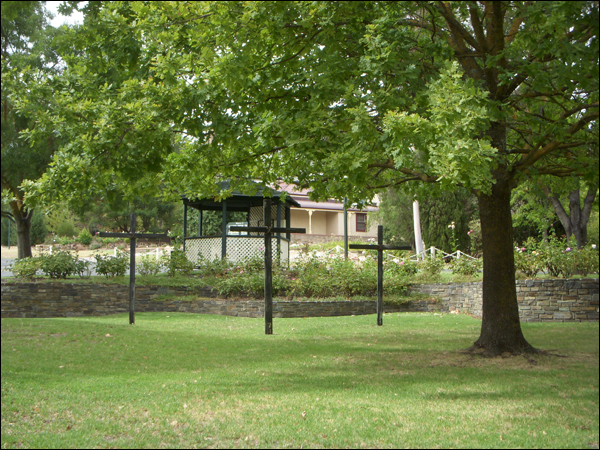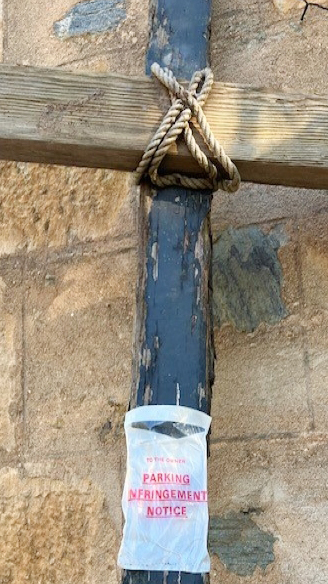 François-Marie Voltaire, the world’s most famous atheist, once proclaimed that although he didn’t believe in God, he employed devout Christians to be his accountant, his cook and his barber because, he said, ‘I don’t want to be robbed, poisoned or have my throat slit!’
François-Marie Voltaire, the world’s most famous atheist, once proclaimed that although he didn’t believe in God, he employed devout Christians to be his accountant, his cook and his barber because, he said, ‘I don’t want to be robbed, poisoned or have my throat slit!’
Voltaire’s credo is a variation of the admission by another famous atheist, Richard Dawkins, who has taken of late to describe himself as a ‘cultural Christian’. He feels ‘at home’, he says, in the Christian ethos, going on to say that substituting Christianity with anything else ‘would be truly dreadful’.
Sometimes we need to remind ourselves of Christianity’s great contributions to the world.
Most of the world’s languages for example were put into writing by Christian missionaries. More schools and universities were started by Christians than by any other group. Motivated by a sense of concern for others, Christians established hospitals, aged care organisations and welfare agencies.
The elevation of women was a Christian achievement, as was the abolition of slavery, cannibalism, child sacrifice and widow burning. Before Christianity came along, almost every civilisation and culture practised slavery or human sacrifice.
Countries which today enjoy the greatest civil liberties are generally those places where the Christian gospel has penetrated the most.
There is a Chinese proverb, “The tears of strangers are only water”. When there is famine or genocide in Africa, for example, Christianity says, “Those people are human like us, we need to help them”. Other cultures say, “Yes, it’s a problem but it’s not our problem”.
The ‘equality of human beings’ is a Christian idea which led to the abolition of slavery and international human rights. US Founding Father Thomas Jefferson said, “That all men are created equal is self-evident”. Most cultures throughout history however, reject this. ‘Inequality’ is what is self-evident they say – height, weight, strength, intelligence, truthfulness, talent etc. What Jefferson was referring to of course was ‘moral equality’. Each life is as valuable as any other.
Closer to home, the Reverend John Flynn founded the Flying Doctor Service and the Australian Inland Mission. His Presbyterian Ministers were known as ‘the boundary riders of the bush’ and were responsible for establishing communication through the inland pedal wireless. Early colonial Governors Macquarie, Hunter and Brisbane were committed Christians. Governor Macquarie personally promoted the British and Foreign Bible Society and the Sunday School Movement. And Australia’s Constitution begins with the phrase, “…. humbly relying on the blessing of Almighty God ….”
Which brings me to a disturbing but symptomatic example of attempts to remove Christianity from the public square – in this case, quite literally.
For more than 30 years, a small church in the Adelaide Hills village of Houghton, has erected three crosses at Easter time. The crosses are simple but strong structures which have steel ‘cleats’ attached to them to enable the crosses to drop into pipe sleeves in the ground. After Easter, the crosses are removed, the pipe sleeves capped, and a small amount of dirt and grass placed over the caps awaiting re-discovery the following year.

For reasons known only to local government bureaucrats, but obscure to common sense, the local council this year saw fit to remove the crosses shortly after they were installed.
The improbable reasons given for removing the crosses were that the Council had been ‘inundated with complaints’, that ‘no permit had been issued’, and ‘there were public safety concerns’. As one resident put it, ‘Safety concerns? What were they concerned about? That they’d go out there one morning and find someone had been nailed to one of the crosses and they would get the blame?’
 Not only had the crosses been removed, but a ‘Parking Infringement Notice’ had been attached to one of them together with a card inviting the reader to contact the Council for further information. This I subsequently did, only to be threatened with ‘another fine’ if the church didn’t immediately repair the slight depression in the ground where the crosses once stood!
Not only had the crosses been removed, but a ‘Parking Infringement Notice’ had been attached to one of them together with a card inviting the reader to contact the Council for further information. This I subsequently did, only to be threatened with ‘another fine’ if the church didn’t immediately repair the slight depression in the ground where the crosses once stood!
One is always loath to attribute to malice what can be better explained by over-zealous bureaucracy, hence a post on Facebook and subsequent local backlash over the Council’s actions did result in an immediate offer by the Council to reinstate the crosses.
Regrettably, the industrious Council inspector had not only removed the crosses, but for some inexplicable reason had also dug out the in-ground sleeves which made it a major task to re-assemble the display.
As for the alleged ‘inundation’ of complaints – none having ever been recorded over the previous 34 years – the Houghton Church and its local residents enjoy a relationship going back 150 years. A local calendar features the following description of Houghton Church:
‘In August 2025, the Houghton Uniting Church will celebrate the 150th Anniversary of the laying of its foundation stone. Throughout that time – including through two World Wars and other cataclysmic events – Houghton Church and its members have been a source of comfort and care when needed. It has also been an important connection point for community events including its annual Christmas Carols on the Green and Pancake Tuesday events, as well as being an active participant in Remembrance Day and Anzac Day services. And of course, Weddings, Christenings and Funerals held at the church provide a service to the community during life’s ever-present milestones.’
These Councils need to be reminded of the old saying, ‘Be careful what you wish for’.
Banning Christianity from the public square is one thing, but trying to ban it from the local village square takes it to a place where even angels fear to tread …!
Thank you for your support.